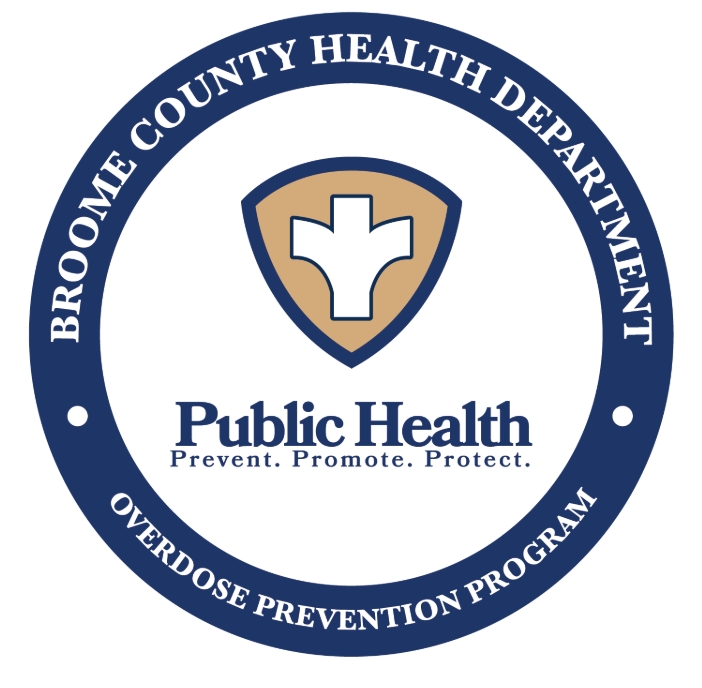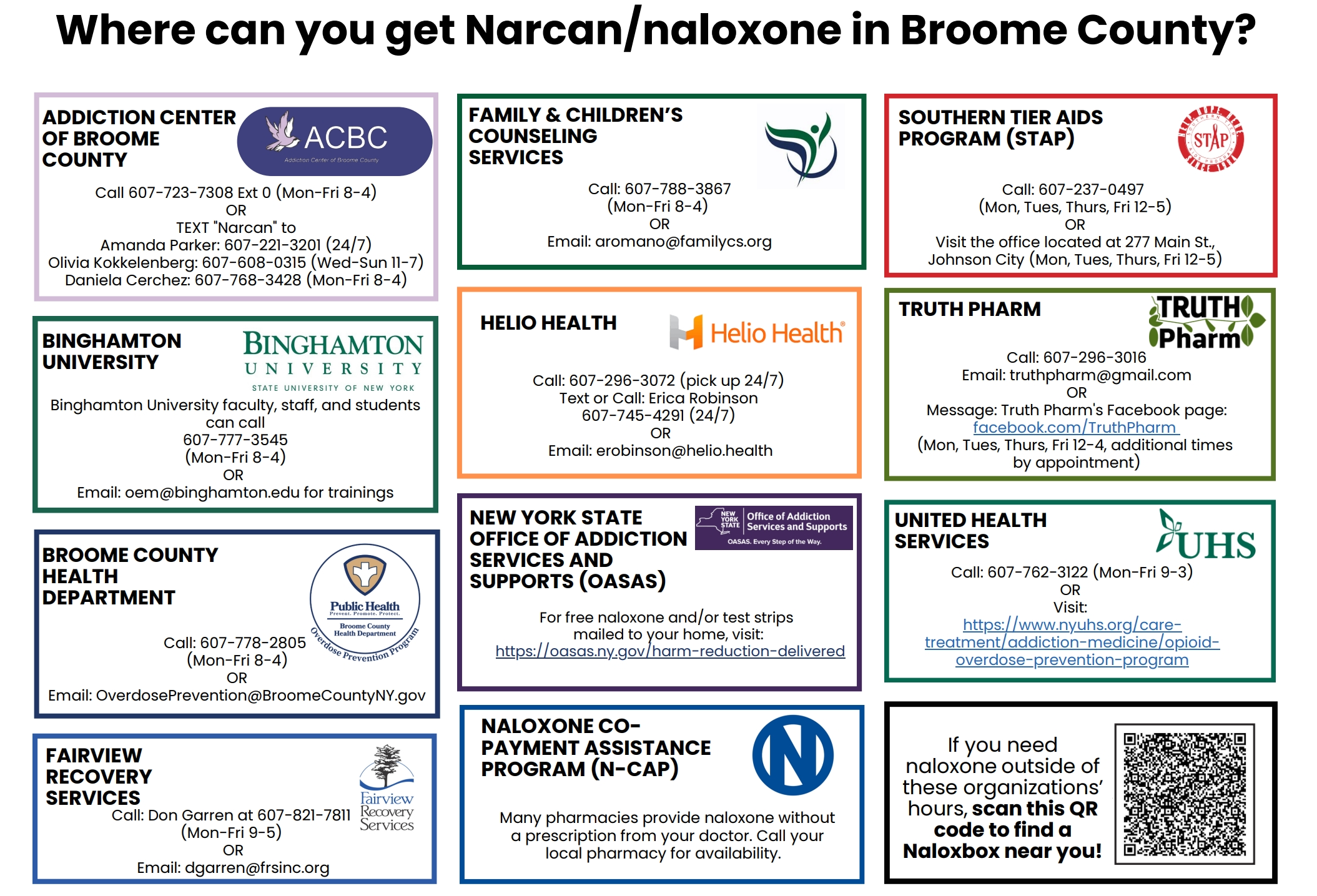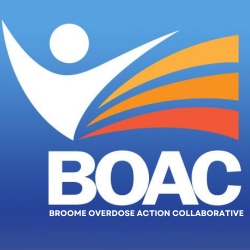
The Overdose Prevention Program works to identify barriers and develop solutions through multisector partnerships to reduce overdoses in Broome County. This is accomplished by community education, reducing stigma, amplifying the voice of persons who use drugs, and promoting harm reduction.
2026 Opioid Settlement Fund Request for Proposals
2026 Opioid Settlement Fund RFP Rubric
Schedule C --Approved Uses
Contact us at 607-778-2805 or OverdosePrevention@broomecountyny.gov for education, media inquiries, or Narcan/naloxone trainings.

ADDICTION CENTER OF BROOME COUNTY: Call 607-723-7308 Ext 0 OR TEXT "Narcan" to 607-221-3201
BINGHAMTON UNIVERSITY: Call: 607-777-3545 OR E-mail: oem@binghamton.edu for trainings
BROOME COUNTY HEALTH DEPARTMENT: Call: 607-778-2805 OR E-mail: OverdosePrevention@BroomeCountyNY.gov
FAIRVIEW RECOVERY SERVICES: Call: 607-821-7811 OR E-mail: dgarren@frsinc.org
FAMILY & CHILDREN’S COUNSELING SERVICES: Call: 607-788-3867 OR E-mail: aromano@familycs.org
HELIO HEALTH: Call: 607-296-3072 OR Text 607-745-4291 OR E-mail: erobinson@helio.health
NEW YORK STATE OFFICE OF ADDICTION SERVICES AND SUPPORTS (OASAS)
NALOXONE CO-PAYMENT ASSISTANCE PROGRAM (N-CAP): Call your local pharmacy for availability of naloxone without a prescription from your doctor.
SOUTHERN TIER AIDS PROGRAM (STAP): Call: 607-237-0497
TRUTH PHARM: Call: 607-296-3016 OR E-mail: truthpharm@gmail.com
UNITED HEALTH SERVICES: Call: 607-762-3122
Broome Overdose Action Collaborative (BOAC)

2025 Public Service Announcement (Video)
Broome Overdose Action Collaborative Facebook Page
